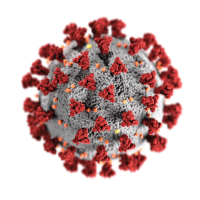
Project provides one location for decision makers to access information on COVID trials and synthesized results – now including vaccine data
An international team of researchers from the Cochrane collaboration has compiled living evidence related to COVID-19 for use by clinicians, policymakers, researchers, funders, guideline developers. Led by Cochrane France in collaboration with Cochrane Germany, Cochrane Ireland, Cochrane Chile, Cochrane South Africa, the Cochrane Bias Methods Group and others, the COVID-NMA project team brings together the latest evidence related to COVID-19, presenting data on trials registered all over the world, as well as living evidence synthesis of results from these trials. The project provides one location for decision makers to access information on COVID trials and synthesized results that is frequently updated by researchers with expertise in evidence synthesis. The project includes two main parts: living mapping of ongoing research followed by living synthesis of study results as soon as they are available.
Living mapping of ongoing research
Every week the research team searches and extracts data from the WHO International Clinical Trials Registry Platform (ICTRP) to identify all RCTs evaluating the effectiveness of interventions for preventing and treating COVID-19 (including rehabilitation), as well as trials assessing vaccines.
This feeds into two interactive living data visualizations on treatments and vaccines, developed in collaboration with research teams from the CNRS, that are updated weekly. These provide easy ways to see the status of COVID-19 studies based, for example, on country in which they are taking place, study design, registration date, type of treatment or vaccine being studied.
This is useful for researchers planning clinical trials, to easily see where there is a gap in evidence, for research funders deciding where to dedicate resources for future clinical trials, or for researchers planning systematic reviews and meta-analyses to know which trials are ongoing and when to expect results for their analyses.
Living synthesis of study results
The living systematic reviews of COVID-19 study results completed by the project focuses on three areas: treatments, preventive interventions and vaccines. For each, as results are available, the team synthesizes these results, providing a list of treatment comparisons, general characteristics of each trial including a risk of bias assessment, forest plots with results from pairwise meta-analyses, GRADE evidence profile and summary of findings tables for all the main outcomes interest to patients and decision makers. All this data is fully available in open access on the project platform.
Where appropriate, the team will undertake network meta-analysis to synthesize the available study results and compare simultaneously all possible interventions that could be used in the same clinical scenario.
The aim is to enable decision makers to access the best current evidence on comparative effects of the interventions and vaccines studied in the trials.
Isabelle Boutron and Philippe Ravaud, project leaders, say of the project: “We are proud of the interdisciplinary and international nature of this collaboration, which we believe provides an important source of high-quality synthesis of all COVID-19 evidence underway.”
Karla Soares-Weiser, Editor in Chief of the Cochrane Library, says, “We are impressed by the work that this project has produced so far. As the COVID-19 pandemic continues and global research on this disease increases daily, there is an ever-growing need for living evidence synthesis. We are pleased to be collaborating with this team, working together to continue responding to this crisis and planning our next steps for living evidence synthesis.”




